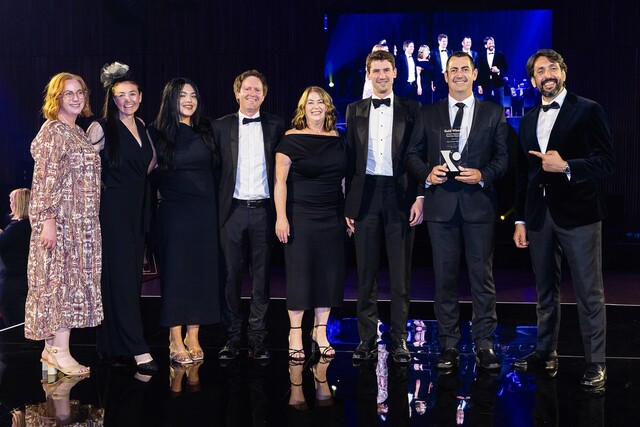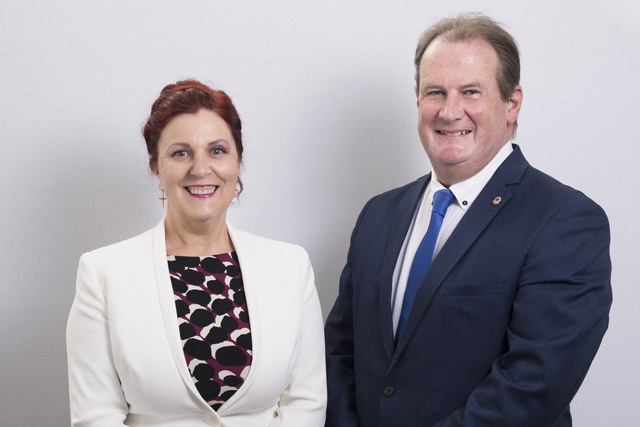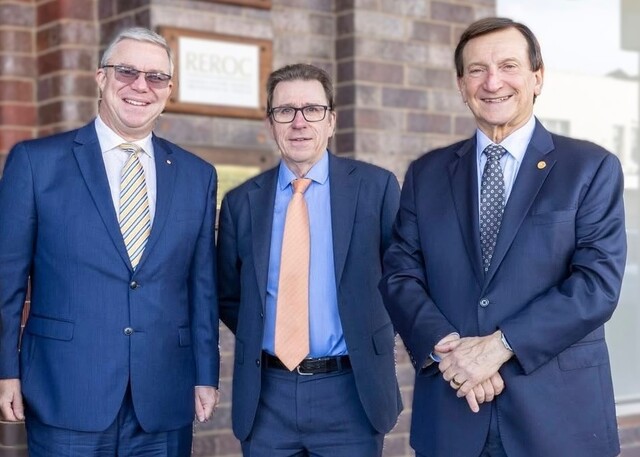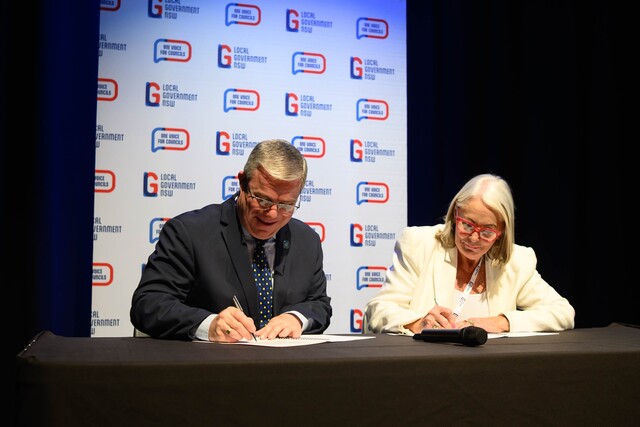The Western Australian Municipal Association (WAMA) selected the theme ‘Image Matters’ for its 1999 Local Government Week activities. A highlight of the Week was the WAMA’s Annual Convention staged in Perth from 1-3 August.
As has been the case at every LG Week Convention since he became Premier, Richard Court officially opened proceedings. Other speakers included State Opposition Leader, Geoff Gallop; Federal Minister for Local Government, Senator Ian Macdonald; State Minister for Local Government, Paul Omodei and Australian of the Year, Mark Taylor.
The Premier told delegates that, in a year marked by a series of natural disasters, he was very impressed with how Local Government came to the fore, calming their communities and showing ongoing leadership during the recovery process.
Commenting on a number of partnership initiatives between Local Government and the State Government, the Premier said that the Safer WA partnership agreement, signed during the 1998 Conference, was making good progress.
“The program invites all members of the community to participate,” he said. “This could not have been done without Local Government involvement. The results are now on the board, a five percent drop in all offences compared to the same period last year.”
In his address, President of WAMA, Councillor Jamie Edwards, said that at a time when the public view of politicians is at an all time low, the Conference theme ‘Image Matters’ is a vital issue facing Councils. “Local Government is engaging on a daily basis with people who hold this view,” he said. “If we do not communicate, we will lose the many advantages we have by being closest to the community. We must elevate Local Government in the conscience of the community.”
Councillor Edwards said, in this regard, issues of recognition are vital, including Constitutional Recognition and partnership agreements with the other spheres of government.
The keynote address was presented by broadcaster and communications expert, Lyn Champion. She said that people expect Councils to provide efficient and effective services in a professional and pleasant manner. They also want their Council to sustain the uniqueness of their area and represent all groups in the community. She warned delegates about being complacent.
“No news is not necessarily good news,” Lyn Champion said. “Around 96% of your residents will not complain at all and, of the four percent that do, they do not do it all the time. “The problem is the people who are not happy may not be telling you, but you can be certain they will be telling each other.”
Federal Minister, Senator Ian Macdonald, agreed that image does matter, but added that substance is just as important as image. “Communities turn to Councils to drive change for a better future,” the Minister said. “Local Government plays a vital role in seizing opportunities for economic and social advancements.”
As Councils prepare for the GST, he said that his Department is currently working on guidelines for a Local Government package that will assist Councils as they move through the transition period leading up to the GST.
Perth builds on its regional and international image
During the Conference session, titled ‘An Evolving Vision – Reflections of Change in the Corporate Image’, delegates heard from Managing Director of Swan Brewery, Mike Molloy, and Chief Executive Officer at Perth City Council, Garry Hunt.
Established in 1847, few would dispute that Swan Brewery has played an important role in both Perth’s and Western Australia’s history. Mike Molloy said that the key for all organisations is remaining relevant in changing times.
“Corporate image is all about change and the challenge of change,” he said. “If you always do what you have always done, you will always get what you have always got.”
Garry Hunt said that a Council’s corporate image is what the public perceives it to be. He said starting with Council’s vision, first ask the question does the whole organisation reflect this philosophy, and secondly, does your Corporate Communications Strategy reflect this?
The City of Perth’s vision is that, as the capital of Western Australia, it will be widely acclaimed as a City of regional and international significance. Garry Hunt said that to achieve this Council has restructured to get rid of its old bureaucratic departments. It has also established a number of cross organisational taskforces to ensure continual improvement.
Its Customer Service Taskforce and a revamped Customer Service Centre are key planks in Council’s quest for continual improvement in service delivery.
Being of both international and statewide significance, Garry Hunt said that Council spends substantial money attracting people into the City. “This is the same for all areas,” he said. “Look at what you have that is attractive and then promote it well.”







